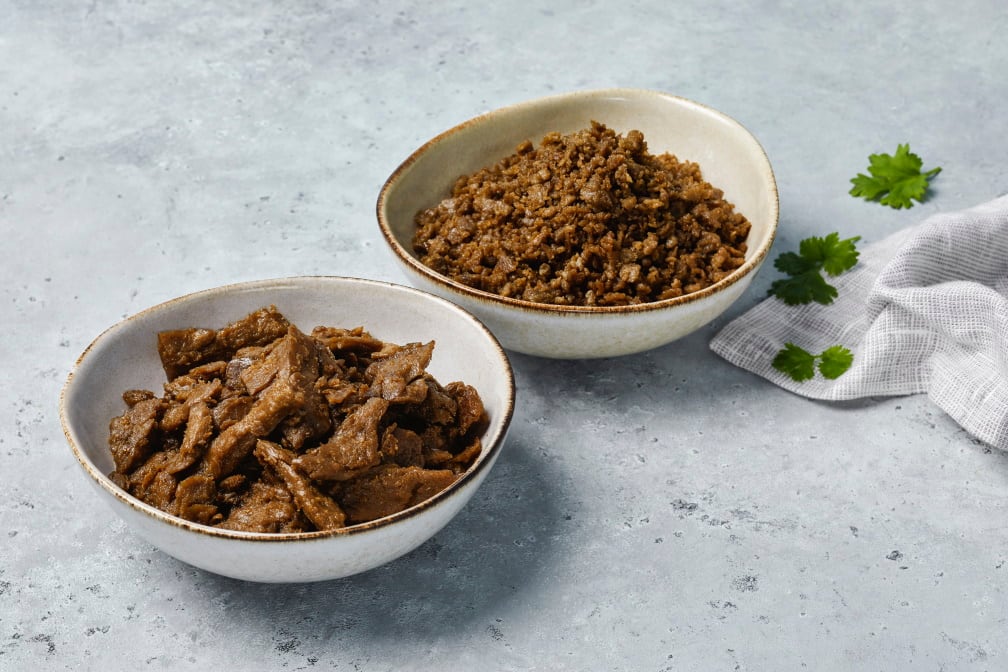New research from MarketsandMarkets shows the global plant-based meat market could be valued at $4.3 billion in 2020 – and grow to $8.3 billion by 2025.
Meanwhile, the number of food companies producing plant-based meat globally rose from 15 companies in 2015 to over 220 in 2020, according to newprotein.org.
However, the plant-based protein market remains in a critical stage where the overall quality of products needs to improve if repeat buying is to flourish, say many.
While many manufacturers are exploring different alternative protein options such as pea, cultivated fat serves to fill the gaps which exist in alternative meat products today in taste, texture, and clean labelling, claims Peace of Meat.
The Belgium-based supplier has developed a unique, proprietary, stem-cell-based technology to produce animal fats, such as those from cattle, chicken or geese, in industrial-scale bioreactors.
According to Peace of Meat, taste poses the greatest barrier for companies offering meat alternatives to acquire and retain meat-eating consumers. It therefore hopes food manufacturers will mix the fat with a plant-based protein such as pea or soy to make a product that has the taste, texture, structure and mouthfeel that mimics the real thing as closely as possible.
The start-up is celebrating its recent tie-up with Meat-Tech, which it says marks a breakthrough for the nascent but quickly moving lab-grown protein sector. It is now bullish on the prospect of food brands increasingly using the fat as a sustainable ingredient in meat alternative products such as nuggets, burgers and meatballs. Adding 10-25% of its cultured fat to a plant-based meat results in 100% meatiness, the company claims.
The plant-based industry 'supports a new product category'
Peace of Meat has just surveyed companies from Kind Earth Tech’s most recent New Protein Map. Out of the 50 respondents, 58% reported that they are likely or very likely to use cultivated meat as an ingredient in their plant-based products. When companies were asked how likely they would be to use a cultivated fat ingredient if it specifically improves taste, the percentage of “likely” and “very likely” replies increased to 66%.
An even higher number of companies, 68%, reported they would be likely or very likely to use cultivated fat if it improves texture and mouthfeel.
According to Peace of Meat, vegetable fats have a tendency to leak out of plant-based meats while cooking, diminishing tenderness and juiciness. It claims cultivated fat’s ‘superior functional properties’ provide a solution to this. “Cultivated fat can balance consumer demands for both indulgence and clean labels considering it has the potential to reduce the number of ingredients such as binding agents, flavours and fats,” the company stated.
When asked how likely they would be to use cultivated fat if it reduces ingredients by 30-60%, 68% of survey respondents replied they were likely or very likely. Non-GMO claims have been part of the clean label trend, reflecting in how 96% of companies reported that they would prefer to use a cultivated fat ingredient that is non-GMO.
“Establishing a dialogue with over 50 companies in the plant-based field was eye-opening,” said Peace of Meat’s co-founder and managing director David Brandes. “The impact this industry has on animal welfare and sustainability is tremendous, yet convincing meat-eaters to change diets permanently remains a challenge. Cultured fat might be the missing ingredient creating real meatiness, and the plant-based industry is very receptive to this innovation.”
Hybrid meat products combining plant-based and cultivated meat ingredients can deliver the flavour and texture that meat-eaters crave, added Brandes. “The survey exhibits strong plant-based meat industry support for the new product category.”
Would vegetarians and vegans eat cultured fat? Or is this question immaterial, assuming that it’s flexitarians that are mainly buying meat alternatives?
“The question whether or not the products can be marketed as vegan or vegetarian is still open,” said Brandes. “However, Peace Of Meat only uses one cell from a fertilised egg to produce an unlimited amount of biomass - no GMO involved. No animal is killed or even raised. All we need is a chick egg two days after fertilisation.
“We also asked the plant-based companies about GMO and 96% said they would not want to use GMO products.”





